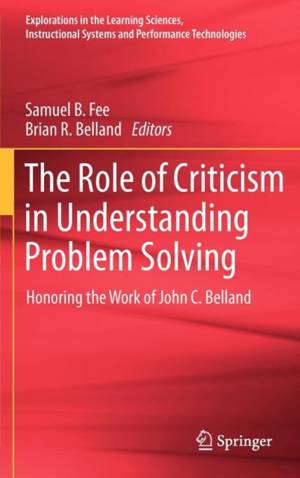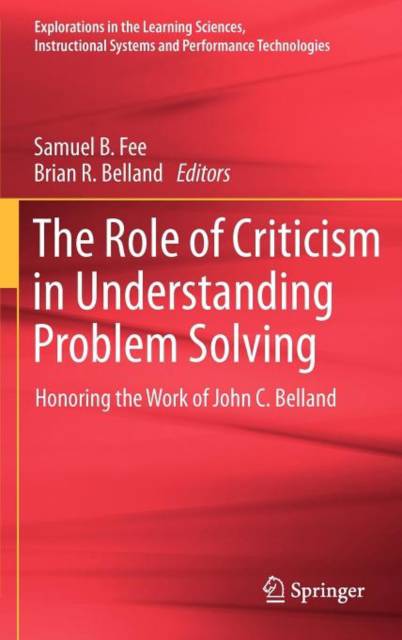
- Retrait gratuit dans votre magasin Club
- 7.000.000 titres dans notre catalogue
- Payer en toute sécurité
- Toujours un magasin près de chez vous
- Retrait gratuit dans votre magasin Club
- 7.000.0000 titres dans notre catalogue
- Payer en toute sécurité
- Toujours un magasin près de chez vous
The Role of Criticism in Understanding Problem Solving
Honoring the Work of John C. Belland
167,95 €
+ 335 points
Description
In 1991, Denis Hlynka and John Belland released Paradigms Regained, a well received reader for graduate students in the field of educational technology. The Role of Criticism in Understanding Problem Solving updates some of those ideas initially proposed in Paradigms Regained, and extends the conversation into the contemporary discourse regarding problem based learning (PBL). Paradigms proposed the idea of criticism as a third method for the conduction of educational research, the first two being qualitative and qualitative. The concept of criticism as a tool for research is not well established in educational technology, although it is well established in other educational research traditions such as Curriculum Studies. Unfortunately, it is not always clear how criticism can be applied. This book views criticism as a way to step back and look at an educational intervention within educational technology through a particular critical lens. Criticism is viewed as a valuable approach to guiding meta analyses and theoretical studies, serving to prevent the proverbial "spinning of the wheels" that often happens in educational research. By indicating new potential research questions and directions, criticism approaches can invigorate educational research. This book revisits the ideals of criticism in order to establish their usefulness for studying educational technology interventions to support problem based learning. First, a few foundational chapters set the stage for the conversations on criticism. Then, the role criticism can play in enhancing analysis and interpretation of the PBL literature is explored. Finally, case studies addressing the central concepts of the text are presented and dissected. This book represents a complete overhaul and rethinking of the use of criticism as a method for understanding and furthering the research area of PBL within the field of Educational technology.
Spécifications
Parties prenantes
- Editeur:
Contenu
- Nombre de pages :
- 264
- Langue:
- Anglais
- Collection :
- Tome:
- n° 5
Caractéristiques
- EAN:
- 9781461410515
- Date de parution :
- 27-05-12
- Format:
- Livre relié
- Format numérique:
- Genaaid
- Dimensions :
- 156 mm x 234 mm
- Poids :
- 557 g

Les avis
Nous publions uniquement les avis qui respectent les conditions requises. Consultez nos conditions pour les avis.





